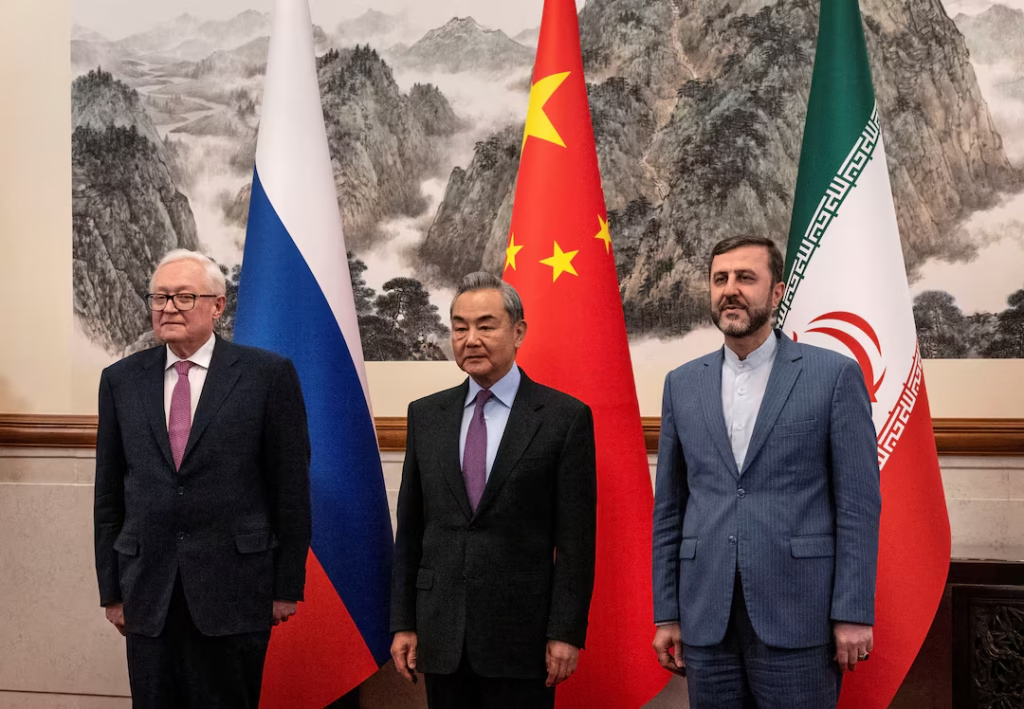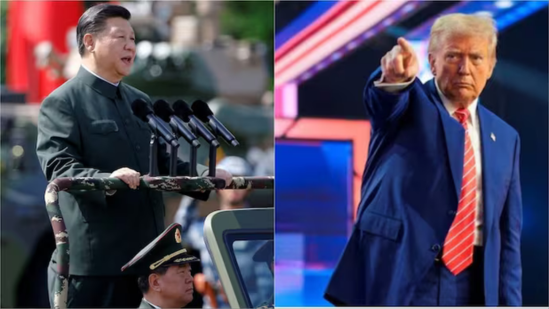
Beijing, June 23, 2025
In a strongly worded official statement, China has sharply condemned the United States for carrying out airstrikes on Iran’s nuclear facilities, calling it a “dangerous provocation” that could lead to major consequences for regional stability and global peace. This marks China’s first formal response after the U.S. confirmed it had launched precision air raids on multiple nuclear development sites across Iran, sparking widespread fear of a larger conflict erupting in the Middle East.
The Chinese Foreign Ministry spokesperson Mao Ning addressed the media and expressed Beijing’s “grave concern,” stating that the US military action was irresponsible, illegal, and likely to escalate tensions not only in the region but across the globe. She emphasized that such strikes could destabilize years of diplomatic efforts, risk civilian lives, and undermine any hope for a peaceful nuclear resolution.
The incident began when the United States conducted targeted bombings on Iran’s suspected nuclear enrichment and weapons development sites on June 20, 2025. The airstrikes were primarily focused on critical facilities near Natanz and Fordow, two known nuclear research centers located deep inside Iranian territory. According to U.S. officials, the move was aimed at disrupting Iran’s alleged plans to fast-track nuclear weapons in violation of international agreements.
The Pentagon claimed the strike was “defensive in nature” and necessary to neutralize an imminent nuclear threat. However, no specific evidence was shared publicly. The operation was executed overnight with the help of unmanned aerial vehicles (drones) and stealth fighter jets, which reportedly caused massive explosions and widespread damage to Iranian infrastructure.
Locals reported intense bombardments and power outages, while Iranian authorities have remained tight-lipped about the full extent of damage, casualties, or disruption to their nuclear program. The sudden military action by the United States caught global leaders off guard and sent shockwaves through international markets and diplomatic circles.
Iran’s Response: Fury and Defiance
The Iranian government reacted with fury, labeling the strikes as an “act of war” and an “aggression against national sovereignty.” Iran’s Supreme Leader Ayatollah Ali Khamenei vowed retaliation and said the country’s military forces have been put on high alert. Speaking in a televised broadcast, Iranian President Ebrahim Raisi condemned the U.S. for violating international norms and announced that Iran reserves the right to defend itself in whatever way it deems fit.
He further stated that “This is not just an attack on Iranian soil, but an attack on the global principles of sovereignty, law, and diplomacy.” The message was clear: Iran will respond, and the nature of that response is yet to be seen.
China’s Diplomatic Stance and Global Concerns
China’s rebuke of the U.S. action is not just about supporting Iran—it reflects Beijing’s larger strategy in opposing what it sees as American unilateralism. Over the years, China has been a strong proponent of diplomatic solutions in the Middle East and has consistently encouraged dialogue over military intervention. China was a key signatory to the Joint Comprehensive Plan of Action (JCPOA), widely known as the 2015 Iran Nuclear Deal, which placed strict limits on Iran’s nuclear program in exchange for lifting economic sanctions.
Even after former U.S. President Donald Trump unilaterally pulled out of the deal in 2018, China, along with European nations, continued supporting it. Now, with the Biden administration’s military actions, China argues that the United States has again undermined global peace and disrespected the principle of multilateralism.
According to Chinese analysts, the airstrikes are a violation of international law and represent an abuse of power by a global superpower. Beijing fears that such actions will undo years of peace negotiations and could potentially drag the world into a new Cold War-like division, with countries aligning on either side of a growing geopolitical rift.
Strengthening China-Iran Relations
Another factor behind China’s strong reaction is its deepening economic and political ties with Iran. In 2021, China and Iran signed a $400 billion strategic partnership deal, set to last for 25 years. The agreement includes cooperation in energy, infrastructure, defense, and technology. This deal has become a cornerstone of China’s Belt and Road Initiative in the Middle East, giving Beijing considerable stakes in Iran’s stability.
As part of this partnership, China is likely to provide diplomatic backing to Iran in forums like the United Nations, and possibly even offer economic relief if further sanctions are imposed by the U.S. or its allies. Some sources in Beijing suggest that humanitarian aid and civilian support programs for Iran may be launched soon, further solidifying their alliance.
International Reactions and Divided Opinions
The global response to the airstrikes has been mixed. Russia quickly sided with China, calling the U.S. actions “reckless” and warning that they could ignite a larger war in the region. The European Union, meanwhile, took a more cautious approach, urging both sides to exercise restraint and return to diplomatic channels.
India, which has strong relations with both the U.S. and Iran, expressed deep concern and advised its citizens to avoid traveling to Iran in the coming weeks. In contrast, Israel hailed the strikes as a “bold and necessary move” to stop Iran from becoming a nuclear-armed state, highlighting the long-standing tensions between Israel and Iran.
This wide range of international reactions shows how polarized the global political environment has become when it comes to Middle Eastern conflicts and nuclear diplomacy.
Impact on US-China Relations
This latest incident is likely to worsen already strained relations between the U.S. and China. Over the past few years, the two nations have clashed over a range of issues—from trade wars and technology bans to military tensions in the South China Sea and Taiwan. Now, with China strongly opposing U.S. military policy in the Middle East, we may be seeing the start of an even more confrontational global alignment.
China’s proposed UN Security Council meeting may also serve as a platform to publicly challenge the United States’ dominance in international affairs. If the issue escalates, it could lead to more severe diplomatic fallout, economic countermeasures, or military posturing.
What Lies Ahead: War or Diplomacy?
With Iran promising retaliation, China demanding accountability, and the U.S. standing firm on its national security justification, the world now finds itself at a crossroads. Will this lead to further military escalation, or will global diplomatic efforts prevail in calming tensions?
China has offered to mediate peace talks involving the United Nations, the European Union, and Middle Eastern nations. It insists that renewed negotiations over Iran’s nuclear program are the only long-term solution and urges the U.S. to rejoin the Iran Nuclear Deal instead of escalating the conflict.
Meanwhile, the U.S. has not yet responded directly to China’s condemnation, though President Joe Biden is expected to address the American public and global leaders soon in a formal speech that may outline the next steps in the crisis.
This situation marks a turning point in modern geopolitics. China’s firm condemnation of the U.S. strikes on Iran’s nuclear facilities is not merely a reaction—it is a clear sign that the global power structure is shifting. The stakes are incredibly high—not just for Iran and the U.S., but for the entire international community. The decisions made in the coming days could either restore peace or ignite a larger global conflict.
For now, the world watches closely, hoping that diplomacy, dialogue, and de-escalation will triumph over war, provocation, and destruction.































